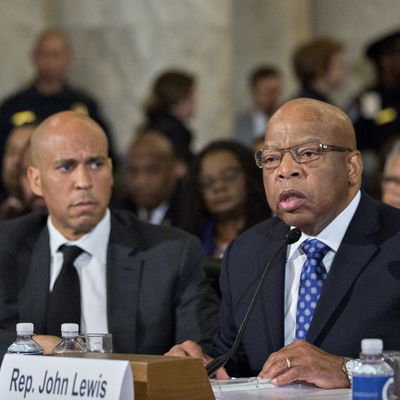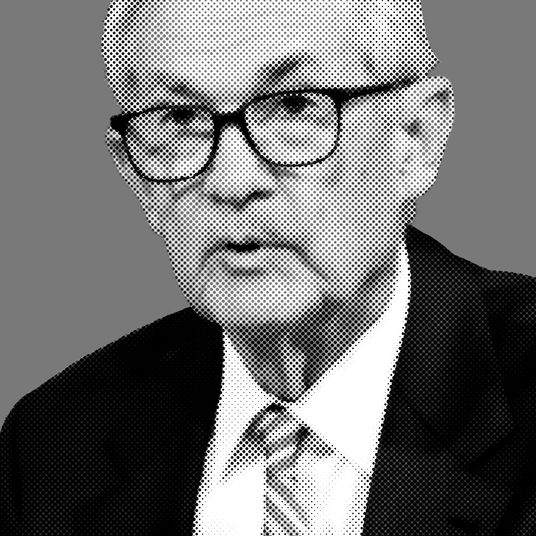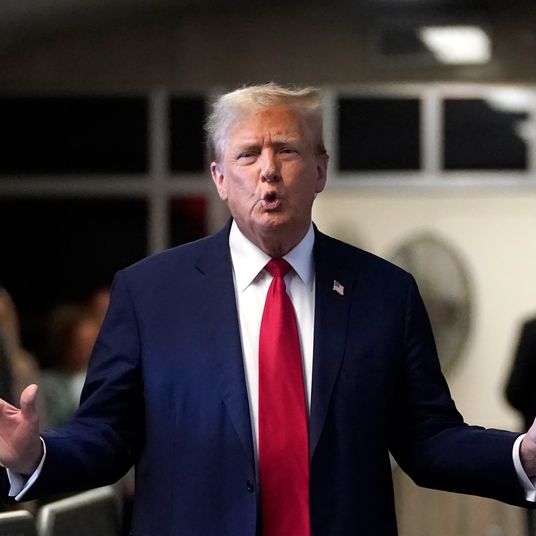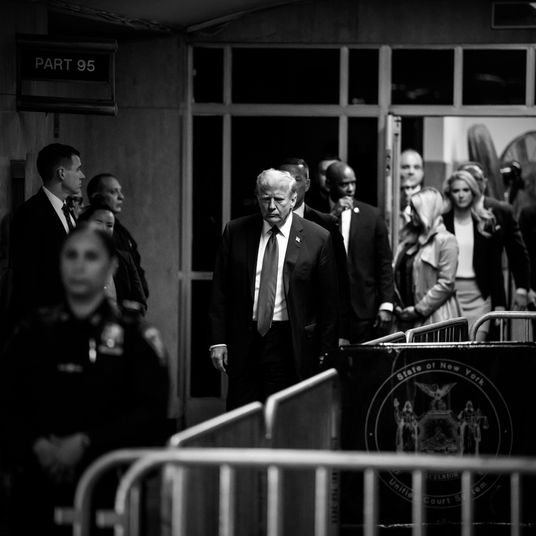
After getting through his own day before the Senate Judiciary Committee relatively unscathed, attorney general-designee Jeff Sessions yielded the spotlight to other witnesses today. They were a mixed bag of Sessions fans and critics who probably didn’t change anyone’s mind about his qualifications for the job. The final panel, though, contained two members of Congress who had unusually strong standing to challenge the Alabaman’s confirmation.
The first was New Jersey Democratic Senator Cory Booker, one of ten African-Americans ever to serve in the upper chamber (two others, Republican Tim Scott of South Carolina and Democrat Kamala Harris of California, serve with Booker today). Much was made in advance that he would be the first U.S. senator to testify against a colleague’s cabinet confirmation (that’s sort of a technical “first,” since a lot of senators spoke out against a former colleague, John Tower, when his confirmation as secretary of Defense was rejected in 1989). And there was a lot of talk about Booker trying to boost his presidential stock.
But what most made Booker an effective dissenter against the picture of Sessions skillfully painted during the first day of hearings — as a man firmly in the mainstream of thinking on all matters involving the justice system, and deeply sympathetic to minority Americans — was his experience with the nominee on criminal-justice reform. Booker has been a leader in the Senate on this subject, working effectively with Judiciary Committee chairman Chuck Grassley to draft a bill Republicans could support. But he ran right into a stone wall of opposition led by Jeff Sessions. Booker views this as a civil-rights issue, as he should. And today he implicitly compared Sessions’s “law and order” objections to criminal-justice reforms to the posture of the Alabama state troopers who stood at the Edmund Pettis Bridge near Sessions’s birthplace, in Selma, and shocked the world by clubbing people who were marching for civil and voting rights.
One of the activists who was clubbed that day — suffering a skull fracture — was sitting next to Booker at the Sessions hearing. And while John Lewis kept his remarks generally mild, he also conveyed the clear sense that he wasn’t buying the makeover Sessions was receiving:
It doesn’t matter how Senator Sessions may smile, how friendly he may be, how he may speak to you. We need someone who is going to stand up, to speak up, and speak out for the people that need help. For people who have been discriminated against. and it doesn’t matter if they’re black, white, Latino, Asian American, or Native American. Whether they are straight or gay, Muslim, Christian, or Jews. We all live in the same house, the American house. We need someone as attorney general who is going to look out for all of us, not just some of us.
Booker and Lewis both made it clear that not being a racist wasn’t good enough for anyone to become the chief federal official responsible for vindicating rights and defending justice. Sessions may have easily leapt over the low threshold set for him by Grassley and Judiciary Committee Republicans. But when a nominee’s most recent accomplishment was serving as Donald Trump’s first and most loyal supporter in Congress, demanding something a bit more forward-leaning should be perfectly in order for those who do not share Jeff Sessions’s reactionary views.






























